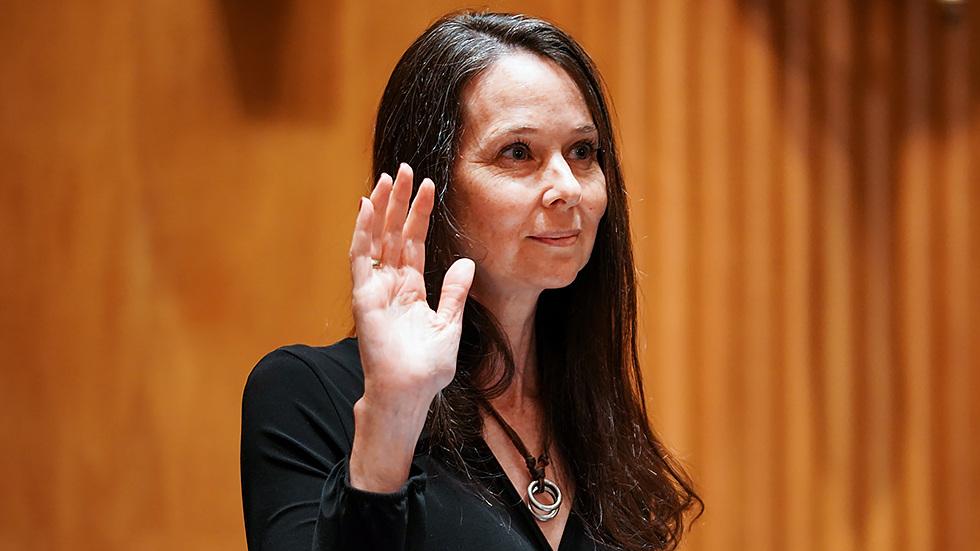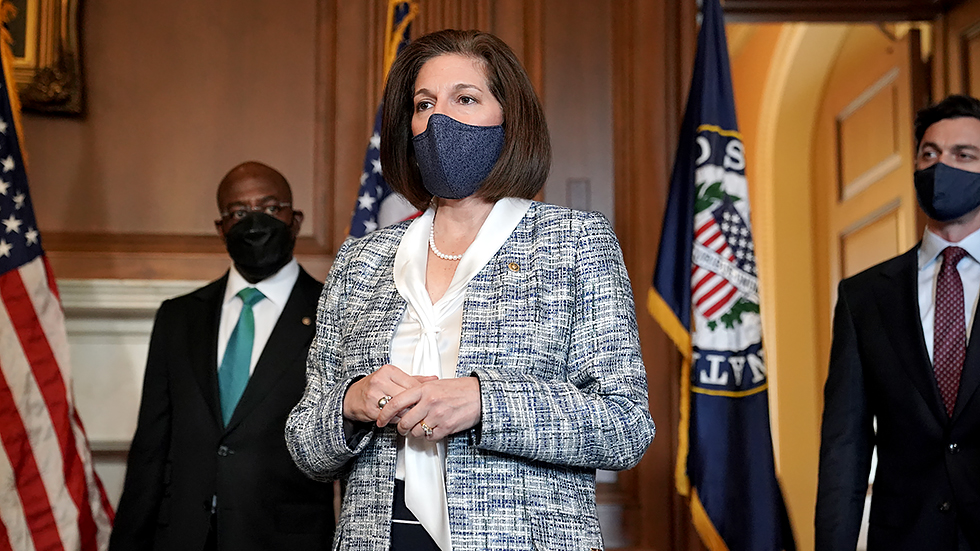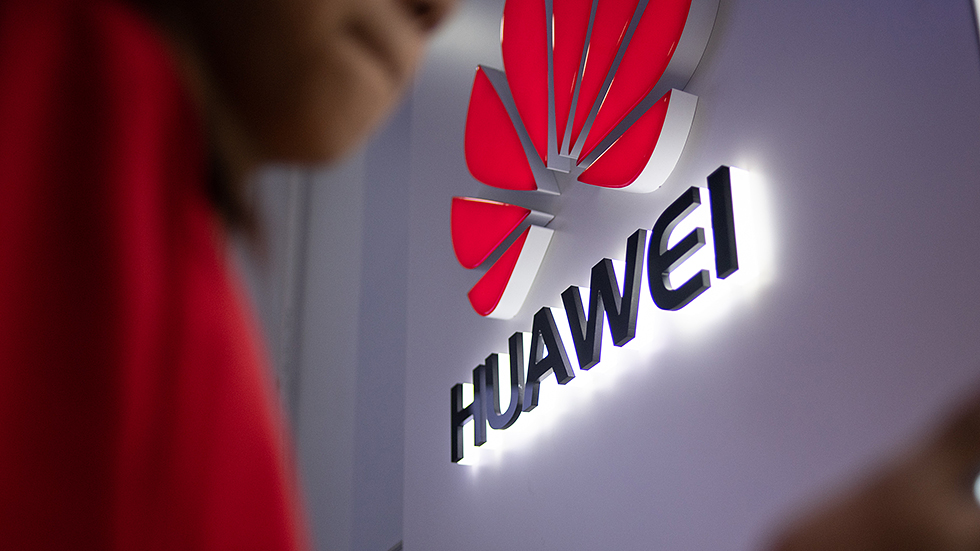Hillicon Valley — Feds zero in on groups critical to national security
Today is Friday. Welcome to Hillicon Valley, detailing all you need to know about tech and cyber news from Capitol Hill to Silicon Valley. Subscribe here: digital-staging.thehill.com/newsletter-signup.
Follow The Hill’s cyber reporter, Maggie Miller (@magmill95), and tech team, Chris Mills Rodrigo (@millsrodrigo) and Rebecca Klar (@rebeccaklar_), for more coverage.
Two key officials in the federal cybersecurity space on Friday closed out Cybersecurity Awareness Month by teasing progress on identifying critical infrastructure groups to further protect against hackers, with their comments coming as Critical Infrastructure Security and Resilience Month tees up.
Meanwhile, a Democratic senator introduced a new bill to help protect Americans’ data, and Apple acknowledged it had become the latest victim of supply chain problems.
Let’s jump in.
To be critical or not to be

Efforts in the federal government and Congress to identify and further protect groups critical to national security from cyber threats are gaining ground amid recent destructive ransomware attacks, officials say.
New program: Cybersecurity and Infrastructure Security Agency (CISA) Director Jen Easterly said Friday that her agency has kicked off an effort to identify “primary systemically important entities” to be protected from threats, often those critical to national continuity.
“We are prototyping a variety of different approaches in our National Risk Management Center…to try and start identifying those entities that are in fact systemically important, and we are doing it based on economic centrality, network centrality, and logical dominance in the national critical functions,” Easterly said during a virtual event hosted by the Center for Strategic and International Studies (CSIS).
CISA’s efforts to identify organizations to further protect come as the nation continues to face a wave of ransomware attacks that have, at times, destabilized key supply chains. These have included the ransomware attack in May on Colonial Pipeline, which led to gas shortages in multiple states for over a week.
“Ransomware, truly a scourge that is affecting all of our lives every day,” Easterly said Friday.
Similar to existing bill: House Homeland Security Committee ranking member John Katko (R-N.Y.) and Rep. Abigail Spanberger (D-Va.) earlier this month introduced the Securing Systemically Important Critical Infrastructure Act. The bill would authorize CISA to set up a program to identify critical groups to protect, similar to what the agency is now undertaking.
Katko, speaking at the same event Friday, teased the potential for his legislation to be included in the annual National Defense Authorization Act, particularly as he is set to sit on this year’s conference committee on the defense package.
New privacy bill on the block

Sen. Catherine Cortez Masto (D-Nev.) is introducing legislation aimed at strengthening data privacy protections for American consumers.
The Digital Accountability and Transparency to Advance Privacy Act would apply standards to all data collection, processing, storage and disclosure — including that it only be done for legitimate business or operational purposes.
New steps: The legislation would also bar companies from using consumer data in discriminatory ways and from engaging in deceptive data practices.
Consumers would be given the right to request, contest, transfer or delete data collected on them without retribution.
The act would require businesses to let consumers opt out of most personal data collection and require opt-in consent for sensitive information, including health and precise geolocation data. Opt-in consent would also be required for use of data for anything outside of the direct business-to-consumer relationship.
MORE SUPPLY CHAIN PROBLEMS
Apple says supply chain issues have cost the company $6 billion in the fourth quarter of the fiscal year.
“We had a very strong performance despite larger than expected supply constraints, which we estimate to be around $6 billion,” Apple CEO Tim Cook told CNBC.
“The supply constraints were driven by the industry wide chip shortages that have been talked about a lot, and COVID-related manufacturing disruptions in Southeast Asia,” he added.
Despite the supply chain issues, the company still made more than $83 billion in revenue, which is up 29 percent from the previous year. Each of the company’s product categories also grew this year.
AOC ISN’T A FAN
Rep. Alexandria Ocasio-Cortez (D-N.Y.) had some sharp words for Facebook’s decision to change its corporate name to Meta — a reference to a Facebook “metaverse.”
“Meta as in ‘we are a cancer to democracy metastasizing into a global surveillance and propaganda machine for boosting authoritarian regimes and destroying civil society… for profit!’” the New York progressive wrote in a tweet.
Ocasio-Cortez quote-tweeted a news outlet that had included a video of the Facebook announcement in its message.
BITS AND PIECES
An op-ed to chew on: Now is the time to take stock of our cyber defenses
Lighter click: Happy Halloweenie
Notable links from around the web:
Apple’s Most Back-Ordered New Product Is Not What You Expect (The New York Times / Daisuke Wakabayashi)
‘The Eye of Sauron is looking elsewhere’: How Twitter and Google really feel about Facebook’s troubles (Protocol / Ben Brody)
Facebook scammers are hacking accounts and running ads with stolen money (Mashable / Matt Binder)
Is Netflix Good For The Jews? (BuzzFeed News / Joseph Bernstein)
One last thing: Huawei woes

Chinese telecom giant Huawei has reported a 32 percent decline in sales amid U.S.-implemented sanctions on the company.
The data released Friday said the company lost $71.2 billion in the first nine months of 2021, down 32 percent, The Wall Street Journal reported.
The company is down $21.2 billion in the most recent quarter, compared to the same period last year, according to the report.
The most recent quarter ending in September is also the fourth quarter the company has seen a decline in revenue as it struggles to overcome U.S. sanctions.
The company’s rotating chairman Guo Ping said in a statement that performance was in line with company expectations, saying Huawei’s business-to-business operations remain stable while its consumer side “has been significantly impacted.”
That’s it for today, thanks for reading. Check out The Hill’s technology and cybersecurity pages for the latest news and coverage. We’ll see you Monday.
{mosads}
Copyright 2024 Nexstar Media Inc. All rights reserved. This material may not be published, broadcast, rewritten, or redistributed..













